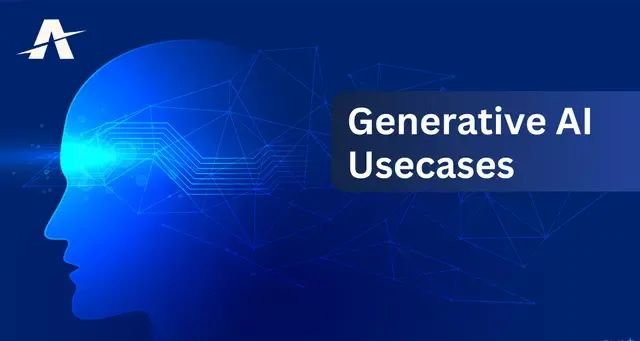
In today’s digital-first world, businesses are under constant pressure to deliver fast, personalized, and efficient customer interactions. Traditional customer support methods, such as call centers and email tickets, often fail to meet modern customer expectations for instant communication. This is where Conversational AI platforms step in. By leveraging artificial intelligence, natural language processing, and machine learning, these platforms enable businesses to build smarter chat systems that enhance customer support, streamline sales, and improve operations.
This blog explores how conversational AI platforms work, their benefits across different business functions, and why they are transforming the way organizations communicate with customers.
What are Conversational AI Platforms
Conversational AI platforms are software solutions that allow businesses to build and deploy intelligent chat systems. Unlike basic chatbots that rely on pre-programmed responses, conversational AI uses advanced natural language processing (NLP) and machine learning to understand intent, context, and sentiment.
These platforms can manage human-like conversations across multiple channels, including websites, mobile apps, messaging platforms, and voice assistants. As a result, businesses can provide 24/7 support, drive sales, and ensure seamless operations.
Smarter Customer Support with Conversational AI
Customer support is one of the biggest beneficiaries of conversational AI. Long wait times and repetitive queries often frustrate customers and overwhelm support teams. Conversational AI platforms address this by:
24/7 Availability: Offering round-the-clock assistance without the need for human staff at all hours.
Automated Query Resolution: Answering frequently asked questions instantly, such as account information, order tracking, or troubleshooting steps.
Personalized Responses: Using customer data and context to provide tailored answers.
Seamless Escalation: Handing over complex queries to human agents while maintaining conversation history.
For example, an e-commerce company can use conversational AI to handle thousands of customer inquiries simultaneously, reducing wait times and increasing satisfaction rates.
Boosting Sales with Conversational AI
Beyond customer support, conversational AI platforms are powerful tools for driving sales. They act as virtual sales assistants that guide customers through their purchase journey.
Product Recommendations: AI can analyze customer preferences and suggest relevant products or services.
Lead Qualification: Conversational systems can identify high-potential leads by asking qualifying questions.
Sales Funnel Nurturing: Following up with prospects through automated messages and reminders.
Frictionless Transactions: Assisting customers with checkout, payment processing, and order confirmation.
By integrating AI-driven chat systems into websites and apps, businesses can increase conversion rates and deliver personalized shopping experiences.
Enhancing Operations with Conversational AI
Conversational AI is not limited to customer-facing roles; it also has a significant impact on internal operations. From HR to IT, AI-driven chat systems improve efficiency and productivity across departments.
HR Assistance: Answering employee queries about policies, leave balances, or payroll.
IT Helpdesk Automation: Troubleshooting basic technical issues and guiding users through solutions.
Task Automation: Scheduling meetings, sending reminders, and updating records automatically.
Data Collection and Insights: Gathering customer or employee feedback for better decision-making.
By reducing the workload of internal teams, conversational AI enables employees to focus on more strategic and high-value tasks.
Key Features of Conversational AI Platforms
Modern conversational AI platforms offer a wide range of features designed to build smarter and more efficient chat systems. These include:
Natural Language Understanding (NLU): Comprehend user intent and context.
Omnichannel Support: Integration with WhatsApp, Messenger, email, and voice.
Multilingual Capabilities: Engage with customers in multiple languages.
Integration with Business Tools: Connect with CRM, ERP, and knowledge bases.
Analytics and Reporting: Track customer interactions and measure performance.
Scalability: Support thousands of simultaneous conversations.
Benefits of Conversational AI for Businesses
Cost Reduction: Automating repetitive queries reduces staffing costs.
Improved Customer Experience: Faster, personalized responses increase satisfaction.
Higher Sales and Conversions: AI-driven recommendations and follow-ups help close more deals.
Operational Efficiency: Automating internal processes saves time and resources.
Scalability: Handle large volumes of queries during peak seasons.
Challenges of Implementing Conversational AI
Despite its many advantages, businesses may face challenges in implementing conversational AI platforms. Some of the common hurdles include:
Integration Complexity: Connecting AI systems with existing tools and databases.
Training Data Requirements: Ensuring the system has quality data to perform effectively.
User Trust: Customers may hesitate to interact with bots if they feel impersonal.
Cost of Implementation: Initial investment may be high for small businesses.
Future of Conversational AI Platforms
The future of conversational AI platforms looks promising as advancements in AI and NLP continue to evolve. We can expect to see:
More Human-Like Interactions with advanced natural language models.
Emotion Recognition for more empathetic responses.
Voice-First Platforms for customer service and operations.
Advanced Personalization anticipating user needs.
Deeper Industry Integration tailored to healthcare, banking, and retail.
Conversational AI platforms are revolutionizing the way businesses interact with customers and manage operations. By building smarter chat systems, organizations can deliver better customer support, increase sales, and streamline internal processes. While challenges exist, the benefits far outweigh the obstacles, making conversational AI a must-have in today’s business landscape.
Frequently Asked Questions
1. What is a conversational AI platform?
A conversational AI platform is a software solution that enables businesses to create intelligent chat systems capable of understanding and responding to human language.
2. How does conversational AI improve customer support?
Conversational AI provides instant, 24/7 support, resolves repetitive queries, personalizes responses, and escalates complex issues to human agents.
3. Can conversational AI platforms boost sales?
Yes, they can recommend products, qualify leads, nurture prospects, and simplify the checkout process, leading to higher sales conversions.
4. What industries use conversational AI the most?
E-commerce, banking, healthcare, telecommunications, and hospitality are among the top adopters.
5. Are conversational AI platforms expensive to implement?
While initial setup costs can be high, they are often offset by long-term savings from automation, reduced staffing needs, and increased sales.
6. Do conversational AI systems require constant updates?
Yes, to remain effective, conversational AI platforms need regular updates, training, and optimization based on user interactions and feedback.












